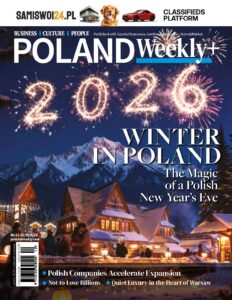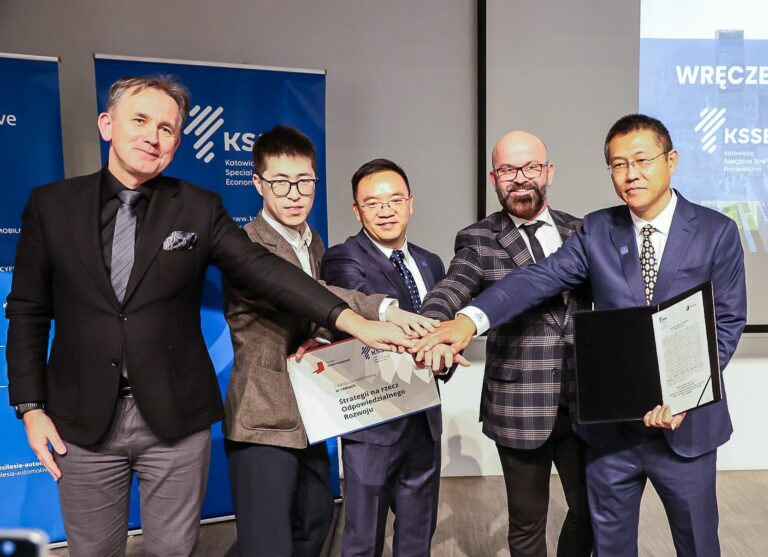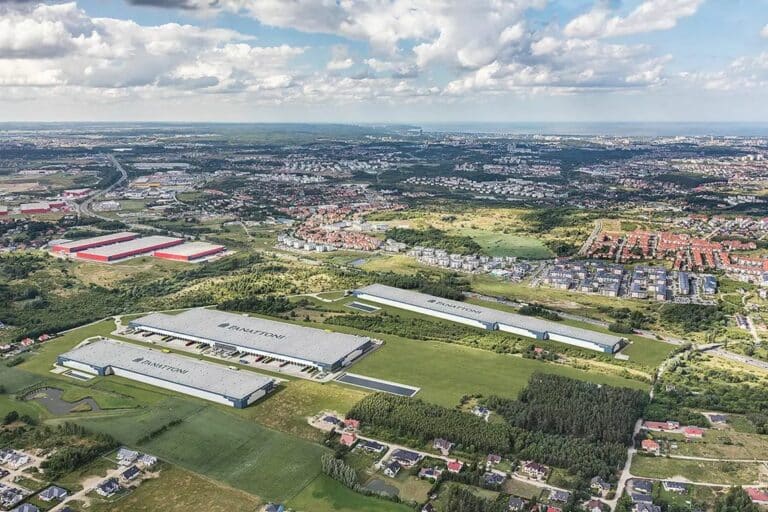Poland as growing source and destination of FDI
Poland Weekly talked with Courtney Fingar, the Founder & Principal of London-based Fingar Direct Investment about how the changing FDI environment and geopolitics are changing Poland’s investment profile.
“Poland, as you know anyway, has been a star performer for FDI for quite a long time now,” Courtney says. “And that tracks with its good overall economic performance as usually economic growth and FDI growth run in tandem and that’s been the case with Poland. But now, Poland has managed – starting out with having capabilities based on cost effectiveness – to move up the quality ladder as well,” she adds.
Poland has seen 10.8% GDP expansion since the final quarter of 2019, second only to Ireland in the EU and forecasts for GDP growth are positive, with analysts surveyed by Focus Economics expecting growth of 2.8% in 2024 – three times higher than the projected 1.1% for the Eurozone.
In the ranking of investment attractiveness of CEE countries, China and Russia, by the Polish-German Chamber of Industry and Commerce (AHK Polska) Poland in 2023 was the leader, with 92.7% of respondents choosing Poland as the best place to do business. “And despite having a lot of competition now from some cheaper countries, it’s still performing incredibly well in industrial sectors, logistics and renewable energy. I know there is a lot of activity in that space,” Courtney adds.
“Poland has also been successful in getting involved in the race to attract ISVs. So it’s a pretty good spread. You know, obviously the services sector is also fairly active with a lot of BPO activity in places like Krakow and scattered around the country. So I feel that Poland has a pretty healthy mix because it has a mix of strong FDI sectors, ranging from the industrial to services,” she adds.
Strong across the board
“It’s a highly attractive market for FDI for a number of reasons. Obviously, from a logistics perspective it is well located between East and west, but has extremely good infrastructure. The cost, although it’s not it’s not the cheap sale that it once was, it’s still fairly cost effective for the level of quality,” Courtney goes on.
“It has a large consumer market, a really good workforce and is economically stable. So I’ve been bullish on Poland for a very long time. And, you know, there are always challenges, there are always flaws in any place,” she adds.
“It’s a difficult environment globally for FDI right now. There have been declines posted in FDI inflows the past couple of years. The prognosis for this year is not that great either. So that makes it difficult for everyone because countries are essentially competing for their slice of a smaller pie. But again, Poland just is a very capable competitor for FDI.”
Sources of investment
“The US is still the largest outbound investor when it comes to greenfield investment. Poland being a strong US ally and with the political lines being drawn as they are, means Poland will continue to attract a lot of investment from the US, from the UK, from Western Europe,” Courtney adds. “As for Chinese investment, I would suspect Poland is a lot less reliant on that type of investment than some other countries.”
Ukraine
“One of the clear impacts of the war is that, you know, obviously defense production is ramping up again with Poland, not just its location, but it’s kind of central role and its geopolitical importance. That means a lot of that kind of activity is going on. And I think Poland’s interesting in general because it’s sort of becoming such a heavyweight, you know, not just in terms of FDI in an economy, but geopolitically as well,” Courtney says.
Military expenditure is expected to provide short-term support to industrial capacity, in Poland, where military spending as a percentage of GDP is the highest within NATO, at 4%. “I think it’s sort of two sides to the coin. It does. I mean, the war and just general instability has heightened investors’ feelings of risk and made them more cautious. And so with Poland being on the doorstep of the war, that in itself puts it in a difficult position. However, Poland has been – I hate to say it – buthas benefited from the war, a lot of the companies, IT companies and so on that were in Ukraine have clearly needed somewhere else to go. And Poland is the obvious place for that. Projects in that industry that may have in the past gone to Ukraine and Poland are sitting right there as a stable country right next door. I also think that in terms of image, it has heightened Poland’s centrality, plus the support, the openness, the proactive role that Poland played from the start, if we’re talking about the national brand and image, I actually think that gave a bit of a boost to Poland.
Poland as exporter of FDI
“There’s a clear rise and it’s a little bit interesting because it’s slightly under the radar because what tends to happen is that other countries, when they’re seeking investment, don’t think of Poland inherently as one of those big source markets. You know, they’re chasing US or Chinese or they’re thinking about German companies or even the UK when we talk about services. Poland is one to look out for, as an exporter of FDI, but also as a trade partner, as a cross-border business partner, I think Poland really needs to be considered, especially for Western European countries, but globally as well,” she adds.
“And Asian markets make a lot of sense because Polish companies may be able to get a cost advantage when they’re thinking about labor and other things, the same way that Western European companies were looking for cost advantages by operating in Poland. Plus, those are big markets and growing markets, so they might as well. It makes total sense for Polish companies to leverage those markets,” Courney says.
Expectations remain high
“Poland’s kind of investment fundamentals have not changed enormously over the years and there’s no reason to think that they would be dented. But even more so, there might be a boost. Because, again, if you’re thinking about friend-shoring, Western European countries are going to be very comfortable with this government in particular. So I don’t see a lot of downside. I don’t see a lot of negatives why this government would scare off investors at all,” Courtney concludes.







